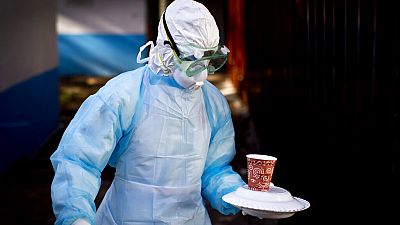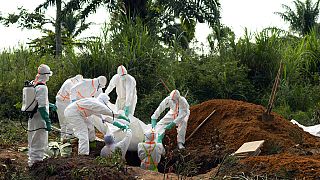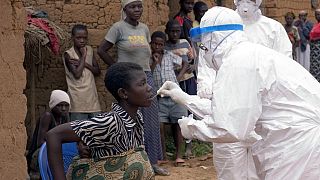Equatorial Guinea
A new provisional death toll from the Marburg virus epidemic that has been raging for more than three months in Equatorial Guinea has risen to 12, according to a new health ministry report confirmed to AFP on Monday.
The last death recorded by the authorities was due to the epidemic of this virus cousin of Ebola and almost as deadly as it was on April 11.
As of April 21, "there have been 17 cases and 12 deaths since the beginning of the epidemic," the Ministry of Health said in a report presenting the epidemiological data of the Marburg virus disease.
A total of 116 contact cases are being monitored, up from 385 on April 11, and 1,427 people have been contact cases since the beginning of the epidemic, the same source said.
Cases of hemorrhagic fever have spread from the eastern province of Kié-Ntem, where the first known deaths occurred on January 7, to Bata, the economic capital of this small central African country, where the majority of confirmed positive cases (11 out of 17) are concentrated, according to authorities.
Nearly a month ago, the World Health Organization (WHO) called on Equatorial Guinea to report cases of the Marburg virus because of fears of more widespread contamination than previously reported. The UN agency was alarmed by a potential "large-scale epidemic" that could affect neighboring Gabon and Cameroon.
The Marburg virus is transmitted to humans by fruit bats and is spread to humans through direct contact with the body fluids of infected persons, or with surfaces and materials. The case fatality rate can be as high as 88%.
There is no approved vaccine or antiviral treatment for the virus. However, supportive care - oral or intravenous rehydration - and treatment of specific symptoms increase the chances of survival.














Go to video
Tanzania’s Prime Minister steps down ahead of elections
01:00
Pix of the Day: July 3, 2025
01:04
South Africa reports new bird flu outbreak on poultry farms
Go to video
’Black Empowerment’ law stalls Elon Musk's $113 million investment in SA
Go to video
In Kenya, 90% of packaged food needs health warning label under new rules
00:52
Nigeria’s Peter Obi to contest 2027 election, opposition coalition in jeopardy